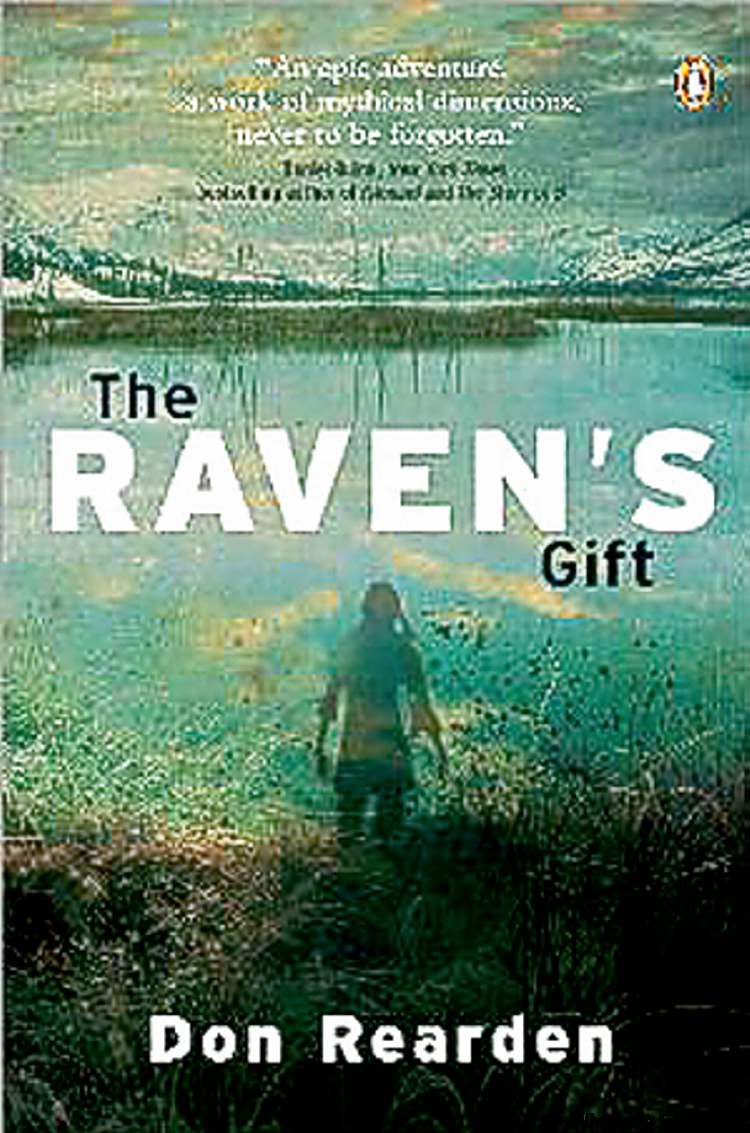Debut novels grabs reader with opening image
Advertisement
Read this article for free:
or
Already have an account? Log in here »
To continue reading, please subscribe:
Monthly Digital Subscription
$0 for the first 4 weeks*
- Enjoy unlimited reading on winnipegfreepress.com
- Read the E-Edition, our digital replica newspaper
- Access News Break, our award-winning app
- Play interactive puzzles
*No charge for 4 weeks then price increases to the regular rate of $19.00 plus GST every four weeks. Offer available to new and qualified returning subscribers only. Cancel any time.
Monthly Digital Subscription
$4.75/week*
- Enjoy unlimited reading on winnipegfreepress.com
- Read the E-Edition, our digital replica newspaper
- Access News Break, our award-winning app
- Play interactive puzzles
*Billed as $19 plus GST every four weeks. Cancel any time.
To continue reading, please subscribe:
Add Free Press access to your Brandon Sun subscription for only an additional
$1 for the first 4 weeks*
*Your next subscription payment will increase by $1.00 and you will be charged $16.99 plus GST for four weeks. After four weeks, your payment will increase to $23.99 plus GST every four weeks.
Read unlimited articles for free today:
or
Already have an account? Log in here »
Hey there, time traveller!
This article was published 29/01/2011 (5438 days ago), so information in it may no longer be current.
WITH its opening image of a man dragging himself on his stomach over a snowdrift, Anchorage author Don Reardon grabs us with his debut novel and pulls us onto Alaska’s frozen tundra. Behind the man, a blind woman on a sled asks, “They’re all gone here too?”
Something has happened. A village has burned, and it is apparently not the first one. There is one other set of sled tracks, which makes them uncomfortable.
So begins this literary novel about post-apocalyptic survival. However, where many novels in this genre focus on the rebuilding of a society, such as the 1949 classic Earth Abides by George R. Stewart, The Raven’s Gift doesn’t get that far. While it also focuses on characters finding fellow survivors, food and shelter following a pandemic, it stays with the journey.

The structure involves three alternating timelines. The story opens with John and the blind woman seeking fellow survivors after mass deaths from a super flu. From current time we are sent back to the beginning of John’s adventure, in which he and his wife are hired to teach in a small Yup’ic hamlet.
The third fills in the middle time, where John emerges from his home and begins his journey for survival. Each timeline holds a mystery. The story is eked out through each cycle until the three come together, much like the passel of grass the girl braids each evening.
Reardon, who teaches English at the University of Alaska in Anchorage, writes of the Arctic as someone who is deeply familiar with it. He incorporates traditional Yup’ic tales in his writing, and sometimes breathtaking imagery, even when describing destruction.
“The vision of a burned and frozen town reminded him of a Robert Frost poem, something about the world ending in either fire or ice. Bethel appeared to have died twice.”
Reardon includes insider northern knowledge, such as when a nurse on John’s flight says she can tell by their shoes that he and his wife are new teachers. There is commentary about Chinese food restaurants, cab drivers from all over the world, and derision about inauthentic television shows such as Northern Exposure.
Underneath this story’s intrigue, suspense and insider knowledge, there is something darker, more disturbing. Anger boils up slowly, as Reardon portrays how pollution affects northern culture and the subsistence way of life, as well as the systemic poverty of which “outsiders” have little knowledge.
Information like this can easily come across preachy. Indeed, Reardon straddles the line as closely as former Manitoban Kevin Patterson did in his 2006 northern novel, Consumption.
Balancing Reardon’s anger, however, is something else that draws the reader back inside. Beyond poverty, substance abuse and suicide we find characters with buoyancy and hope.
For readers who dream of northern adventure, as John and his wife did, the author offers this advice through a departing teacher: “Don’t just teach and go home at night and hole up in front of the television like most people do. Get out and learn about life here, this place will teach you more than you’ll ever teach your students.”
One wonders if this is knowledge gleaned through experience. Truly, it is the authenticity of this novel that appeals most.
Winnipeg author Anita Daher is a former northerner.

